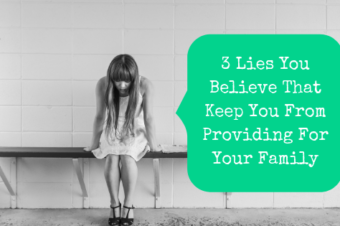
It’s important to prepare for your death by writing a will and getting other estate planning documents in order. However, just doing that doesn’t always guarantee smooth sailing for your family. Here are some common estate planning mistakes that can cause trouble for your family after you pass.
As a pastor, you’ve probably walked a number of families through the death of a loved one. You’ve seen how smoothly it can go when all of the legal matters are in order and how stressful it can be when they’re not.
Because of this, I think pastors usually have a greater appreciation for proper estate planning than most people. You know what a difference it can make to have your affairs in order.
However, appreciation does not always translate into action. Just because you know you should, doesn’t mean you have. And even if you have, that doesn’t guarantee there won’t be problems. Here are 7 common estate planning mistakes to watch out to save your family a lot of time and trouble.
1 Your Will Isn’t State-Specific
It’s the states that determine the laws surrounding death and inheritances, not the federal government. As such, the laws vary from state to state. Some states require certain language while others have different defaults if something isn’t spelled out. Your will needs to comply with the laws of your specific state to avoid problems when you pass away. Also, remember to update your will if you move to another state.
2 You Set Up A Trust But Didn’t Fund It
A living trust is useless if there is nothing in it. Setting one up with a lawyer is only the first step, the easy part. Once it’s set up, you need to transfer your assets into it. That means you have to contact your bank(s) and fill out forms so that the owner of your accounts becomes the trust, and not you. You also need to change ownership of any real estate that you own with your local city or county. Don’t forget to change the title of any cars that you own, or anything else where your name is written down as the owner.
3 You Picked The Wrong Person To Handle Your Estate
Your wife is the closest person to you and you trust her with your life, but should she be the executor of your will? Don’t you think she will have enough to deal with, mourning your loss?
People often name their closest family members to execute their estates, but that isn’t always a good idea. While they may be responsible and trustworthy (necessary traits for an executor), it might be better to name someone more objective and less emotionally involved.
4 You Sell Or Gift Property Before Your Death
Property that you own has something called basis, which is how much you paid for it. That is important because whenever you sell it, everything over the basis is considered gains for tax purposes. So, if you bought a property for $100,000 and sold it for $250,000, your basis would be $100,000 and your taxable gains would be $150,000.
If you own property, it is best not to pass it on to your heirs before you pass away, because they will receive a step-up in basis after your death. That means that whatever the property is worth at your death will become the new basis.
Let’s look at an example. My grandparents bought a house with ocean views on the side of a hill in Laguna Beach, CA in 1970 for $50,000. That was their basis. About 6 years ago it sold for almost $1 million. That resulted in about $950,000 of taxable gains. My grandma had a big tax bill. If she had sold it to my dad, he would have faced the same tax bill. If she had given it to him, he would have faced gift taxes on that amount. However, if it had been a part of her estate when she died, the basis would have changed from $50,000 to $1 million, and my dad could have sold it without paying any taxes at all.
5 You Had Another Kid But Didn’t Update Your Beneficiaries
I wonder how many people write wills and do their estate planning when they have their first child but fail to update it for the subsequent children. If you make a will that says Child #1 gets everything, and then have a few more without updating everything, then guess what? When you die, Child #1 gets everything and Children #2 & #3 are at her mercy.
I have children, so I know how hectic the early years are. Estate planning is usually the last thing on your mind. However, it is very important. If you haven’t updated your will and beneficiaries since your last kid was born, go do it now!
6 You Didn’t Write Out What Happens If One Of Your Beneficiaries Dies
My grandma had two sons that she named as beneficiaries of her estate. Unfortunately, one died before she did. Does that mean the whole estate goes to the living son or does some get passed to the heirs of the one who passed away?
The difference in one word in your will or trust documents determines the answer to that question. Is it per capita or per stirpes? The first, per capita, is Latin for “by head,” and means that it would all go to the living son. Per stirpes is Latin for “by branch” and means the inheritance would be passed on to that branch of the family, even if the original beneficiary had already passed.
7 You Haven’t Gotten Around To It Yet
You know it’s important to write a will and get your affairs in order. You just haven’t gotten around to it. After all, you’re healthy, you’ve still got plenty of time. But, do you? Healthy people die all the time by no fault of their own.
You need to think of your family. Think of what it would be like for them if you have everything in order when you die and how different it would be if things were the way they are now. Make the loving choice and do what’s best for your family, even if it’s a little inconvenient for you. Go through our Comprehensive Estate Planning Checklist and take action. One day they’ll be thanking you for it.



